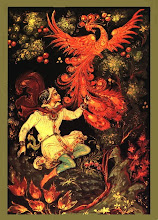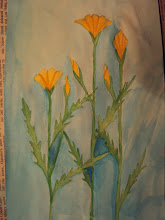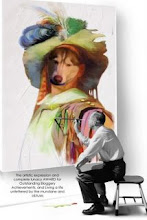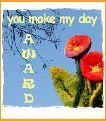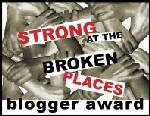Wow, time flies when you're having fun... June is already ending but I still have another complete month of vacation (Yay). I don't officially go back to work until August 10th but I imagine I will get started after the July 31st grand opening of our new high school building if I don't still find another job.
I did apply for a few more jobs. The most exciting thing I applied for is a language arts job at a school for the arts but I'm sure the competition will be fierce. I do have a connection at the school but I think everyone is on vacation right now so I'll just have to wait and see if I can get an interview.
I got my teaching schedule for next year at my current school but the whole thing reads like a mystery. The course titles on my schedule are all new and it looks like I am teaching everything in a double block so I am assigned three classes that will extend the time it takes everyone else to teach six classes. The good news is that if I have the same kids for two hours in a row, my grading load should be smaller. This will be good because I am teaching straight through from 7:15 until about 1:40 with maybe a half hour for lunch so it will be a long day for me. I no longer have yoga on my schedule so there will be no other real breaks in my day. I am actually relieved to have the yoga off my schedule because it will keep my passion fresh for the adult classes I teach on my own time. At the end of this year, I was sick of teaching yoga to resistant teens so I think this will be a good thing although I will miss the yoga break in the middle of my day.
I wanted to put up something creative on the blog today like poetry or prose but the time got away from me while I was working on my latest painting and now I'm off to the dentist and then to teach two yoga classes so the more stimulating writing will have to wait a day or two.
Today I am grateful for good health, sunshine and creative inspirations.
Tuesday, June 30, 2009
Friday, June 26, 2009
The Latest from Denver Refashionista

The more ADD I allow myself to be, the more creative I become. I recently have found myself drawn to watercolor painting. One of my latest paintings is pictured here. If you want to see the others check out my Denver Refashionista blog. I hope you enjoy them.
Thursday, June 25, 2009
Great Interview
I just was sent a link to a great interview with a poet who has MS. What was significant to me was not her MS, but all the great things she has accomplished. I found this interview very interesting and inspiring. Click here to enjoy.
Happy Reading,
Nadja
Happy Reading,
Nadja
Monday, June 22, 2009
Journal 6/22/09
I thought I would just take a minute to put down a few random things about my life lately. I think I am mostly writing for myself these days because my blog counter is hardly moving so I might as well indulge myself by writing whatever I want with no concern for audience. To be honest, I am usually my own audience anyway. Lately, I have been accused of being a bit self-absorbed so I guess this post proves that I do lean that way (LOL).
First, a few thoughts on the yoga front. On Friday I went to another workshop with Darren Main, a yogi I had the pleasure to take a great workshop from last summer. This time I only took one class instead of the workshop. This workshop was focused on strength and flexibility, neither of which I am much concerned with these days, but I like Darren so I went anyway. I still love Darren but I did not get much enjoyment from this workshop. The theme was "pushing your edge." In the past, this would have had a major appeal to me but now it does not fit my approach to yoga. I found myself skipping many of the strength excercises just to save an energy reserve that would get me through two hours of yoga. We did get very warm and so the flexibility work felt good to me. I did not find it hard because I am already unusually flexible but I also knew that as I did the work in the heat, I would pay the next day. Pay I did. It was only this morning, after a mellow yoga class that I felt like my body was back to normal. On Saturday, right after the workshop, I was super-tired and sore. Just going to the mall with my husband wore me out.
Despite the challenges of the workshop, I am glad I went. It helped clarify for me what I want out of my asana (physical) yoga practice. The class I went to today was only half the length of the workshop, much mellower and unheated. I found it was perfect for my needs. I have decided I will only go to really challenging classes when I have lots of energy and no soreness in my body. MS has taught me to pick and choose my activities carefully. It has also made me examine what I want from my yoga practice. I think I am moving toward balance in both realms.
I recently seem to have found just about the perfect balance between activities that require a lot of energy and those that are a bit easier. It seems that I can do about three things that require a lot of energy on any one given day. These are best balanced by quiet, mellow things around the house. Basically, a day might involve, going to yoga, doing some yard work and running some errands (those would be my big things). Then I can still do little things at home like reading, blogging, refashioning or painting. All of this changes when I need to work. When I work, that is my main thing and if I take some rest time most days, I can cook dinner or teach yoga at night but not on the same day. It seems like if I follow this pattern and save some time for rest or quiet activity at home, I feel pretty decent. Just getting this figured out is a big help.
The other day on Joan's blog she mentioned the spoon theory. I thought that this theory did a great job of explaining what a day in the life of a person with a chronic illness is like. I think it ties into what I was just explaining about my day but it also made me realize that I am one of the lucky ones because while my spoons, are limited, they are not as limited as many people's.
There are a few work things on my mind right now too so I wanted to write them down just to purge my system until August. I didn't get the job I interviewed for last week. I guess it was not in the cards for me now. I am ready to move forward and into my new high school but I go with some anxiety. This anxiety I plan to push aside until August and then I plan to make the best of whatever arises. Mostly, I am anxious about finding my supplies in our new building. I am also nervous about teaching an additional class and moving around to different classroom on a cart instead of having my own room. The last thing that concerns me is the change in my district's ELL programs. During the spring, I planned extensively for the upcoming school year but I am concerned that in August, district mandates may come down that make my work unusable so I may have to start all my planning from scratch without sufficient time or resources. Since all this is out of my control, I have decide that once I write this, I am not going to worry about it until the beginning of August. Work doesn't resume until August 10th so that should give me about 10 days to panic and run around before I really need to worry. If all goes smoothly, (my fingers are crossed) I will never need to scramble and I can just sit back and let others stress while I remain a calm ocean:)
Today I am grateful that I have five more weeks to just relax. Man, it's a rough life...
First, a few thoughts on the yoga front. On Friday I went to another workshop with Darren Main, a yogi I had the pleasure to take a great workshop from last summer. This time I only took one class instead of the workshop. This workshop was focused on strength and flexibility, neither of which I am much concerned with these days, but I like Darren so I went anyway. I still love Darren but I did not get much enjoyment from this workshop. The theme was "pushing your edge." In the past, this would have had a major appeal to me but now it does not fit my approach to yoga. I found myself skipping many of the strength excercises just to save an energy reserve that would get me through two hours of yoga. We did get very warm and so the flexibility work felt good to me. I did not find it hard because I am already unusually flexible but I also knew that as I did the work in the heat, I would pay the next day. Pay I did. It was only this morning, after a mellow yoga class that I felt like my body was back to normal. On Saturday, right after the workshop, I was super-tired and sore. Just going to the mall with my husband wore me out.
Despite the challenges of the workshop, I am glad I went. It helped clarify for me what I want out of my asana (physical) yoga practice. The class I went to today was only half the length of the workshop, much mellower and unheated. I found it was perfect for my needs. I have decided I will only go to really challenging classes when I have lots of energy and no soreness in my body. MS has taught me to pick and choose my activities carefully. It has also made me examine what I want from my yoga practice. I think I am moving toward balance in both realms.
I recently seem to have found just about the perfect balance between activities that require a lot of energy and those that are a bit easier. It seems that I can do about three things that require a lot of energy on any one given day. These are best balanced by quiet, mellow things around the house. Basically, a day might involve, going to yoga, doing some yard work and running some errands (those would be my big things). Then I can still do little things at home like reading, blogging, refashioning or painting. All of this changes when I need to work. When I work, that is my main thing and if I take some rest time most days, I can cook dinner or teach yoga at night but not on the same day. It seems like if I follow this pattern and save some time for rest or quiet activity at home, I feel pretty decent. Just getting this figured out is a big help.
The other day on Joan's blog she mentioned the spoon theory. I thought that this theory did a great job of explaining what a day in the life of a person with a chronic illness is like. I think it ties into what I was just explaining about my day but it also made me realize that I am one of the lucky ones because while my spoons, are limited, they are not as limited as many people's.
There are a few work things on my mind right now too so I wanted to write them down just to purge my system until August. I didn't get the job I interviewed for last week. I guess it was not in the cards for me now. I am ready to move forward and into my new high school but I go with some anxiety. This anxiety I plan to push aside until August and then I plan to make the best of whatever arises. Mostly, I am anxious about finding my supplies in our new building. I am also nervous about teaching an additional class and moving around to different classroom on a cart instead of having my own room. The last thing that concerns me is the change in my district's ELL programs. During the spring, I planned extensively for the upcoming school year but I am concerned that in August, district mandates may come down that make my work unusable so I may have to start all my planning from scratch without sufficient time or resources. Since all this is out of my control, I have decide that once I write this, I am not going to worry about it until the beginning of August. Work doesn't resume until August 10th so that should give me about 10 days to panic and run around before I really need to worry. If all goes smoothly, (my fingers are crossed) I will never need to scramble and I can just sit back and let others stress while I remain a calm ocean:)
Today I am grateful that I have five more weeks to just relax. Man, it's a rough life...
Friday, June 19, 2009
Garden Prose
I should have written this sooner, while the memory was fresher but alas, time is often the enemy. Today was precious, one moment outside the press of time--
There was an instant of Samadhi as I stood in the garden surveying my work. There is no bliss as complete as this communion with the earth. Strange, I have always loved gardens, but I never wished to garden. Better to watch others at this work, to enjoy the fruits of their labors than to cover myself in scratches and dirt just to pull a few weeds. My garden is changing me. She whispers to me. I think of her often. While I never plant anything in her soil, she brings me peace. Cars may rush by this haven nestled in the city but I am undisturbed in her shade.
Who could have dreamed that weeding and trimming would feel like an act of art and creation? Who could have dreamed that beside the earth and plants, one could know the divine? I climb between the plants and feel that I am one with God. There is no seperation. My faith grows. I put my faith not into something, something outside myself, but rather to the pulse of the divine within me. The same divine creeps from the plants before me and dwells in the spirit of every living being on the planet. I don't need to hear God speak aloud. There is a voice within me, a voice in the garden that guides my step.
My faith grows. I know that the key to an amazing life is before me if I just listen carefully enough. I feel the heat of the sun and the cool of the shade. I smell the fresh dirt and the flowers blossoming around me. It is in rare moments we find oneness but right now, I have it. I truly believe there is no seperation between you and me, he and she and them. Things are simpler here and yet all complexities are revealed.
There was an instant of Samadhi as I stood in the garden surveying my work. There is no bliss as complete as this communion with the earth. Strange, I have always loved gardens, but I never wished to garden. Better to watch others at this work, to enjoy the fruits of their labors than to cover myself in scratches and dirt just to pull a few weeds. My garden is changing me. She whispers to me. I think of her often. While I never plant anything in her soil, she brings me peace. Cars may rush by this haven nestled in the city but I am undisturbed in her shade.
Who could have dreamed that weeding and trimming would feel like an act of art and creation? Who could have dreamed that beside the earth and plants, one could know the divine? I climb between the plants and feel that I am one with God. There is no seperation. My faith grows. I put my faith not into something, something outside myself, but rather to the pulse of the divine within me. The same divine creeps from the plants before me and dwells in the spirit of every living being on the planet. I don't need to hear God speak aloud. There is a voice within me, a voice in the garden that guides my step.
My faith grows. I know that the key to an amazing life is before me if I just listen carefully enough. I feel the heat of the sun and the cool of the shade. I smell the fresh dirt and the flowers blossoming around me. It is in rare moments we find oneness but right now, I have it. I truly believe there is no seperation between you and me, he and she and them. Things are simpler here and yet all complexities are revealed.
Tuesday, June 16, 2009
Insights
Yesterday I was writing about how I hesitate to put some things onto my blog because of who might view them and how they might be viewed. Today I am throwing caution to the wind and wrtiting about what is on my mind.
My mother gifted me a Vedic astrology reading and yesterday I got to talk over the reading with the woman who did it. My best friend's mother also created a "Human Design" reading for me and today we talked over that. Many people might claim that info gained from both these readings is a bunch of crap designed to suck people in. I sit somewhere in the middle on the whole thing. I am open to possibilities but because of my untraditional spiritual upbringing, I am a bit conflicted in accepting data generated from such sources. My husband would say that we have the tendency to latch onto things from something like an astrological reading until everything seems to make sense or become true for us. He has a valid point. Television Psychics do this all the time and people help them do it without even realizing that every little thing they do is offering fodder to the reader. All of this said, some of what was told to me in both readings did resonate for me. Both readings were done by people who barely know me, and there were many commonalities in the things that were said to me although they come from different systems. It would take a lot to explain each system here so I will just indulge myself and focus on what things had meaning for me.
One of the commonalities between the readings related to my emotions. Both readers told me that I am often uncertain about how I feel from one moment to the next. My Human Design reading suggested that I am easily influenced by others and that I am quick to act as others would wish me to even if I am not clear about something myself. I find this to be very true. I often beat myself up for being slow in my reactions but my Human Design suggests that I need to take my time. This is hard for me because I also want to please others and to make them like me. I find this to be very true. It is only recently that I have begun to listen to myself more and to trust my own instincts. When I go against my instincts or do not allow myself time to properly process, I put my health in jeopardy. I am also finding this to be true. The minute I agree to something I still feel conflicted about, my health seems to take a blow. I can literally feel my stress at the back of my neck. I get hot and cold flashes behind my hair. This has only happened since my diagnosis with MS but now it serves as a great barometer regarding my stress around situations.
Another thing I learned from my Human Design was also very helpful. Apparently, I have a very defined "heart center" which is unusual. This can often alienate people and leave me wondering what I did. I immediately sense this alienation and put forth a lot of effort trying to get others to like or approve of me. No matter what my own belief about the matter, this seems important. I have spent way too much of my life and energy trying to please others up to this point and I can see the consequences in my health. The reader suggested that I need to focus on myself although it goes against my desire to please others. This is both good and difficult to hear. I feel selfish being selfish but my gut is telling me that this is the only way to stay healthy. It doesn't mean the world has to revolve around me but it does mean waiting before I say yes to things I feel conflicted about. If an instant decision is required and I feel conflicted, I should probably say no instead of saying yes to please someone else. If I feel conflicted and have time to think about the matter, I should take the time to really think and then make a decision. I recently did this with a big decision regarding work and in the end, I realized I should skip an opportunity because it just wasn't right for me. Now I know I made a really good choice.
I think there are a few key things I got out of this whole foray into "transcendental reality." I must take time to know my own thoughts and emotions for certain. I must take time for myself and be willing to say "no." I don't always need to worry about the approval of others, hence going ahead with this potentially controversial post. There was nothing new that I was told about myself that I didn't already know. Both readings lent clarity to what I was already thinking and feeling. Although I am still uncertain about how much I am willing to believe or say that I believe, I am glad to have had these experiences. I am left with a great deal of food for thought and I don't need anyone else to tell me that I love something interesting to ponder.
Today I am grateful to both the readers who took the time to investigate my charts and to interpret them for me.
My mother gifted me a Vedic astrology reading and yesterday I got to talk over the reading with the woman who did it. My best friend's mother also created a "Human Design" reading for me and today we talked over that. Many people might claim that info gained from both these readings is a bunch of crap designed to suck people in. I sit somewhere in the middle on the whole thing. I am open to possibilities but because of my untraditional spiritual upbringing, I am a bit conflicted in accepting data generated from such sources. My husband would say that we have the tendency to latch onto things from something like an astrological reading until everything seems to make sense or become true for us. He has a valid point. Television Psychics do this all the time and people help them do it without even realizing that every little thing they do is offering fodder to the reader. All of this said, some of what was told to me in both readings did resonate for me. Both readings were done by people who barely know me, and there were many commonalities in the things that were said to me although they come from different systems. It would take a lot to explain each system here so I will just indulge myself and focus on what things had meaning for me.
One of the commonalities between the readings related to my emotions. Both readers told me that I am often uncertain about how I feel from one moment to the next. My Human Design reading suggested that I am easily influenced by others and that I am quick to act as others would wish me to even if I am not clear about something myself. I find this to be very true. I often beat myself up for being slow in my reactions but my Human Design suggests that I need to take my time. This is hard for me because I also want to please others and to make them like me. I find this to be very true. It is only recently that I have begun to listen to myself more and to trust my own instincts. When I go against my instincts or do not allow myself time to properly process, I put my health in jeopardy. I am also finding this to be true. The minute I agree to something I still feel conflicted about, my health seems to take a blow. I can literally feel my stress at the back of my neck. I get hot and cold flashes behind my hair. This has only happened since my diagnosis with MS but now it serves as a great barometer regarding my stress around situations.
Another thing I learned from my Human Design was also very helpful. Apparently, I have a very defined "heart center" which is unusual. This can often alienate people and leave me wondering what I did. I immediately sense this alienation and put forth a lot of effort trying to get others to like or approve of me. No matter what my own belief about the matter, this seems important. I have spent way too much of my life and energy trying to please others up to this point and I can see the consequences in my health. The reader suggested that I need to focus on myself although it goes against my desire to please others. This is both good and difficult to hear. I feel selfish being selfish but my gut is telling me that this is the only way to stay healthy. It doesn't mean the world has to revolve around me but it does mean waiting before I say yes to things I feel conflicted about. If an instant decision is required and I feel conflicted, I should probably say no instead of saying yes to please someone else. If I feel conflicted and have time to think about the matter, I should take the time to really think and then make a decision. I recently did this with a big decision regarding work and in the end, I realized I should skip an opportunity because it just wasn't right for me. Now I know I made a really good choice.
I think there are a few key things I got out of this whole foray into "transcendental reality." I must take time to know my own thoughts and emotions for certain. I must take time for myself and be willing to say "no." I don't always need to worry about the approval of others, hence going ahead with this potentially controversial post. There was nothing new that I was told about myself that I didn't already know. Both readings lent clarity to what I was already thinking and feeling. Although I am still uncertain about how much I am willing to believe or say that I believe, I am glad to have had these experiences. I am left with a great deal of food for thought and I don't need anyone else to tell me that I love something interesting to ponder.
Today I am grateful to both the readers who took the time to investigate my charts and to interpret them for me.
Monday, June 15, 2009
A whole bunch of random
Usually I love to write on my blog but at the moment, I am a little dissatisfied. I never hesitate to write things that are purely about me but when they involve others, I start to think twice. My blog feeds to facebook and half my family is on there. Many others read my blog. Sometimes my friends know the people or the situations that I want to write about too intimately. Lately, I find myself keeping a private journal with all the stuff I feel like I can't mention here. Some people might say, "Why keep a blog at all?" I guess I stick with the blog because it keeps me writing regularly and that feels important to me. Most of the time, it gives me a creative outlet and an avenue for processing my thoughts but at times like these, I dare not write about everything that is on my mind.
So far my vacation has been good but not amazing. I think it is about to start getting better. I have been longing to spend loads of time by myself but until today, I have not had the chance. First, my mom visited which was great but I was not alone at all. Then, my husband was furloughed for a week and so we had like four days with us both at home pretty much non-stop and we spent most of that time together. That was also nice at times but my soul has been longing for solitude. At last, today I have the house to myself.
I haven't been feeling well since I started my vacation either. I am not exactly sure what is going on. It could be that I have not had enough time to rest. When my mom was here, I forced myself out of bed in the morning before I was ready to get up and even when I napped, I did not do so until I was satiated. When my husband got home, I stayed up too late a few times and got up before my body felt ready. I also packed in a lot of activities during the week. These factors still don't seem to fully explain my symptoms though.
Lately, I have felt exhausted most of the time. When I do get going, I run out of steam really quickly. I know that by now, most MSers are suspecting the heat but the thing is, it's not even hot here. In fact, it has been cool and rainy for months. This might explain some of my other issues. My body aches. I have been having patches of numbness and on Wednesday, my arms went numb from the elbow down for about half and hour. That has never happened before and I was terrified until it passed. Many of my symptoms seem to mimic those I have during my menstrual period. Even the lymph node under my right arm is swollen and sore but that usually only happens when I have female issues. Honestly, I feel like an old woman. I normally don't take painkillers except for female stuff and lately I have taken ibuprofin every day to combat the aches in my body.
If this wasn't enough, I have been waking up with blurry vision and I have had several bad headaches this last week. There are also frequent bouts of nausea. Now I imagine many of my readers will ask, "Have you contacted a doctor?" No, I am hoping that a few days of rest and diminished activity will clear things up. Last night I had a good, long sleep and today I have kept things very mellow. I also took a nap on my own terms. I do feel better than yesterday but not nearly as good as I was feeling in the weeks leading up to this slew of physical discomforts.
I am not much for complaining so maybe now that I have bitched a little, I can let this go. I am seeing the holistic practitioner I have been working with this Thursday so I am hoping she can balance me and shed some light on my current health issues. I am determined that no matter what, I will have a great summer.
I did go on a job interview last week for another instructional coaching job in my school district. I think the interview went well and that I have the right credentials so I'm keeping my fingers crossed.
Today I am grateful to enjoy time for solo contemplation...
So far my vacation has been good but not amazing. I think it is about to start getting better. I have been longing to spend loads of time by myself but until today, I have not had the chance. First, my mom visited which was great but I was not alone at all. Then, my husband was furloughed for a week and so we had like four days with us both at home pretty much non-stop and we spent most of that time together. That was also nice at times but my soul has been longing for solitude. At last, today I have the house to myself.
I haven't been feeling well since I started my vacation either. I am not exactly sure what is going on. It could be that I have not had enough time to rest. When my mom was here, I forced myself out of bed in the morning before I was ready to get up and even when I napped, I did not do so until I was satiated. When my husband got home, I stayed up too late a few times and got up before my body felt ready. I also packed in a lot of activities during the week. These factors still don't seem to fully explain my symptoms though.
Lately, I have felt exhausted most of the time. When I do get going, I run out of steam really quickly. I know that by now, most MSers are suspecting the heat but the thing is, it's not even hot here. In fact, it has been cool and rainy for months. This might explain some of my other issues. My body aches. I have been having patches of numbness and on Wednesday, my arms went numb from the elbow down for about half and hour. That has never happened before and I was terrified until it passed. Many of my symptoms seem to mimic those I have during my menstrual period. Even the lymph node under my right arm is swollen and sore but that usually only happens when I have female issues. Honestly, I feel like an old woman. I normally don't take painkillers except for female stuff and lately I have taken ibuprofin every day to combat the aches in my body.
If this wasn't enough, I have been waking up with blurry vision and I have had several bad headaches this last week. There are also frequent bouts of nausea. Now I imagine many of my readers will ask, "Have you contacted a doctor?" No, I am hoping that a few days of rest and diminished activity will clear things up. Last night I had a good, long sleep and today I have kept things very mellow. I also took a nap on my own terms. I do feel better than yesterday but not nearly as good as I was feeling in the weeks leading up to this slew of physical discomforts.
I am not much for complaining so maybe now that I have bitched a little, I can let this go. I am seeing the holistic practitioner I have been working with this Thursday so I am hoping she can balance me and shed some light on my current health issues. I am determined that no matter what, I will have a great summer.
I did go on a job interview last week for another instructional coaching job in my school district. I think the interview went well and that I have the right credentials so I'm keeping my fingers crossed.
Today I am grateful to enjoy time for solo contemplation...
Sunday, June 14, 2009
My Lemonade Award Selections

I will now pass along this award as instructed. Last week I got to honor some awesome bloggers and now I get to honor a few more.
A Short in the Cord
A Stellar Life
Merelyme's Multiple Synchronicities and Sclerosis
I'll be back with more soon. Enjoy these blogs in the meantime.
Friday, June 12, 2009
Dearest Blog

Dear Blog:
I love you so much but lately I have been very busy outside the cyber world. I would like to tell you that you are number 1 on my list but sadly, that is not true. However, due to my deep love I promise to come back soon. In the meantime, I have some exciting news. Tara at Living Day-to-Day With Multiple Sclerosis gave us an award. Right now I can't get her link to work but soon we will visit her blog to say thanks. We will also have to get together to discuss who we should pass our latest award on to. Please say hi to all our blog friends when they drop by.
Love,
Ms. Refashionista
Tuesday, June 9, 2009
Golden Heart Award

I wanted to take a moment to thank Herrad for giving me the Golden Heart Award.
I will now bestow this award upon:
The Gifts of MS
Serina's Blog
MS-LOL- MS Life of Learning
Blindbeard's Multiple Sclerosis Blog
Brass and Ivory
These are a great set of bloggers and I love to read their work but I also want to give a shout out to every blogger bookmarked on my page because they all rock!
Sunday, June 7, 2009
"Enlighten Up"
Last night I had the opportunity to go see the new yoga movie, "Enlighten Up" with one of my fellow yoga teachers. I think we both found the film very thought-provoking. Now I feel compelled to write out some of my own thoughts about both yoga and the movie.
The film was a documentary that focused on the yogic journey of a man named Nick. The filmmaker (Kate) wanted to see what would happen when a non-yogi immersed themselves in yoga so she followed Nick around the world as he met and practiced with various yoga teachers. It seemed that both Kate and Nick hoped he would have some deep, spiritual revelations and that he would also be led to some life-altering changes. During most of the film, both seemed frustrated that this was not happening. The ironic part is that Nick's journey lasted less than a year, although he traveled as far as India. I found this ironic because each of the teachers (gurus) he met along the way told him that yoga was a "practice." Each one questioned what he wanted from his yogic journey and each one said that for the most part, there is no quick path to enlightenment.
There were times during the film when I wanted to leap into the film to talk to both Nick and Kate. Nick's approach actually made more sense to me than Kate's at times. Nick wanted spiritual revelation, even though he maintained that he was not a believer and needed to experience things for himself. Kate seemed to insist that if Nick would just embrace the process, he would be transformed. In both cases, it often seemed they were missing the point and never fully observing the wisdom of the teachers they visited.
If I could boil down what each teacher in the film was saying, it seemed that they felt there was validity in Nick's idea that he must experience the divine himself before he could believe. It also seemed that each teacher was saying that there is no one, right path in yoga. They emphasized the importance of each individual, suggesting that every man or woman must find the yoga that is right for them.
I think that part of both Nick and Kate's trap was the idea that yoga is the practice of "asana" or physical posture. They seemed to think that by practicing with different masters, they would eventually find a form of asana that would lead to enlightenment. Interestingly, Nick did not really make any big spiritual or life breakthroughs until near the end of the film. At that point, he met a Bhakti yogi(one who practices the yoga of devotion that often involves chanting but no physical asana at all) and he asked this master about what yoga was "right" for him. The Bhakti master basically said that this was for Nick to decide. He said that Nick needed to find his true self and that self would know. Nick objected that he did not know how to find himself. In fact, it seemed that's what Nick's quest was really about. The master told him that it is not easy to know oneself but that it was a process that often meant sifting out who we are not, before we can really know who we are. After this encounter, Nick was left speechless. He dreamed about his mother. It suddenly became clear to him that he was conflicted about the yoga partly because of the dichotomy between her beliefs and those of his father. She is a Shamanic healer and his father is a lawyer. After meeting with the Bhakti guru, Nick realized that he now had much greater acceptance for his mother and that he was no longer ashamed of her beliefs. He also found he had greater compassion and tolerance for his fellow human beings.
Nick left the whole experience uncertain about what he had learned. He claimed that the experiment was a "failure" and yet after his experience, he restructured his entire life. He left his home in New York and moved to Colorado. He got a new job writing for climbing magazines ( a job I think is in tune with his nature). He reconnected with his mother. The film ended by stating that Nick no longer practices yoga but I found that claim a misnomer. Nick may no longer practice asana, but his experiences with yoga have fundamentally changed him. In my experience, one does not have to practice asana in order to practice yoga. Asana is how we often view yoga in the western world but asana is not "yoga."
One of the most important patterns I have found in the yogic literature and in the words of the masters is that yoga is a very individual practice. It is primarily about finding the "true self" or "Atman" (the divine within each of us). The Bhakti's may emphasize devotion to "God" but God is not necessarily defined in one way. It seems to me that the one thing all the yogic masters seem to have in common is the idea that in each of us is the spark of the divine. When we practice yoga (in whatever form) we are seeking to find that divinity within. In many ways, this may sound very selfish-- yoga is all about you. On the other hand, if each individual strives to find and be their best self, they may find happiness. If the world is full of complete, secure, happy people, it might be a better place. No one would feel jealousy. Many of the things that lead to conflict and war would be eliminated. We would not grasp for what others have. We would not compete for recognition or resources. Sharing and compassion might become the status quo. I am not positing a world where everyone can stand on their head but I am suggesting a world where we acknowledge the worth of each individual, a world where we acknowledge our own worth, without outside validation.
I find that yoga (not my asana practice alone) is changing me fundamentally. I myself have focused on the process of sorting out all the things that I am not, in order to find who I truly am. The more I engage in this process, the more I am finding who I am. The closer I get to my true self, the healthier and happier I feel. Almost all of my stress comes from trying to meet a set of expectations. Although I set many of these expectations, it is my ego that has created them. I imagine what others expect from me, what is the good and "virtuous" way to do things in this society and then I try to live up to this set of expectations that are based purely on perceptions rather than reality. When I stop worrying about all these false expectations and focus on what feels most right for me, I feel better.
Today I am grateful for the clarity given to me by my own mental interactions with this film.
The film was a documentary that focused on the yogic journey of a man named Nick. The filmmaker (Kate) wanted to see what would happen when a non-yogi immersed themselves in yoga so she followed Nick around the world as he met and practiced with various yoga teachers. It seemed that both Kate and Nick hoped he would have some deep, spiritual revelations and that he would also be led to some life-altering changes. During most of the film, both seemed frustrated that this was not happening. The ironic part is that Nick's journey lasted less than a year, although he traveled as far as India. I found this ironic because each of the teachers (gurus) he met along the way told him that yoga was a "practice." Each one questioned what he wanted from his yogic journey and each one said that for the most part, there is no quick path to enlightenment.
There were times during the film when I wanted to leap into the film to talk to both Nick and Kate. Nick's approach actually made more sense to me than Kate's at times. Nick wanted spiritual revelation, even though he maintained that he was not a believer and needed to experience things for himself. Kate seemed to insist that if Nick would just embrace the process, he would be transformed. In both cases, it often seemed they were missing the point and never fully observing the wisdom of the teachers they visited.
If I could boil down what each teacher in the film was saying, it seemed that they felt there was validity in Nick's idea that he must experience the divine himself before he could believe. It also seemed that each teacher was saying that there is no one, right path in yoga. They emphasized the importance of each individual, suggesting that every man or woman must find the yoga that is right for them.
I think that part of both Nick and Kate's trap was the idea that yoga is the practice of "asana" or physical posture. They seemed to think that by practicing with different masters, they would eventually find a form of asana that would lead to enlightenment. Interestingly, Nick did not really make any big spiritual or life breakthroughs until near the end of the film. At that point, he met a Bhakti yogi(one who practices the yoga of devotion that often involves chanting but no physical asana at all) and he asked this master about what yoga was "right" for him. The Bhakti master basically said that this was for Nick to decide. He said that Nick needed to find his true self and that self would know. Nick objected that he did not know how to find himself. In fact, it seemed that's what Nick's quest was really about. The master told him that it is not easy to know oneself but that it was a process that often meant sifting out who we are not, before we can really know who we are. After this encounter, Nick was left speechless. He dreamed about his mother. It suddenly became clear to him that he was conflicted about the yoga partly because of the dichotomy between her beliefs and those of his father. She is a Shamanic healer and his father is a lawyer. After meeting with the Bhakti guru, Nick realized that he now had much greater acceptance for his mother and that he was no longer ashamed of her beliefs. He also found he had greater compassion and tolerance for his fellow human beings.
Nick left the whole experience uncertain about what he had learned. He claimed that the experiment was a "failure" and yet after his experience, he restructured his entire life. He left his home in New York and moved to Colorado. He got a new job writing for climbing magazines ( a job I think is in tune with his nature). He reconnected with his mother. The film ended by stating that Nick no longer practices yoga but I found that claim a misnomer. Nick may no longer practice asana, but his experiences with yoga have fundamentally changed him. In my experience, one does not have to practice asana in order to practice yoga. Asana is how we often view yoga in the western world but asana is not "yoga."
One of the most important patterns I have found in the yogic literature and in the words of the masters is that yoga is a very individual practice. It is primarily about finding the "true self" or "Atman" (the divine within each of us). The Bhakti's may emphasize devotion to "God" but God is not necessarily defined in one way. It seems to me that the one thing all the yogic masters seem to have in common is the idea that in each of us is the spark of the divine. When we practice yoga (in whatever form) we are seeking to find that divinity within. In many ways, this may sound very selfish-- yoga is all about you. On the other hand, if each individual strives to find and be their best self, they may find happiness. If the world is full of complete, secure, happy people, it might be a better place. No one would feel jealousy. Many of the things that lead to conflict and war would be eliminated. We would not grasp for what others have. We would not compete for recognition or resources. Sharing and compassion might become the status quo. I am not positing a world where everyone can stand on their head but I am suggesting a world where we acknowledge the worth of each individual, a world where we acknowledge our own worth, without outside validation.
I find that yoga (not my asana practice alone) is changing me fundamentally. I myself have focused on the process of sorting out all the things that I am not, in order to find who I truly am. The more I engage in this process, the more I am finding who I am. The closer I get to my true self, the healthier and happier I feel. Almost all of my stress comes from trying to meet a set of expectations. Although I set many of these expectations, it is my ego that has created them. I imagine what others expect from me, what is the good and "virtuous" way to do things in this society and then I try to live up to this set of expectations that are based purely on perceptions rather than reality. When I stop worrying about all these false expectations and focus on what feels most right for me, I feel better.
Today I am grateful for the clarity given to me by my own mental interactions with this film.
Friday, June 5, 2009
Daydream
I am imagining this jacket I want to refashion. At the moment, it is unadorned but I'm imagining it as something more Rock n' Roll. There will be patches on the back and the front breast pocket. I will design and embroider them myself. I also imagine a strip of embroidery running down the length of the right, front side of the coat.
I am also imagining the watercolor paintings I will make. I will finish the one I started, a larger-than-life sprig of lilac, abstract and gargantuan. A co-worker just sent me some close-up photos he has taken of flowers. I will print these and turn them into watercolors.
I have been watching "So You Think You Can Dance" and I have begun to imagine myself dancing. No one is watching but in my head, I have launched into a series of lyrical dance poses. My movements are long and graceful but each transition is new and unexpected. It is my daydream so I can get into every pose I imagine. Wish me luck (LOL)...
I can hardly believe I made it. Here it is, the last day of work until August and I have exceeded my own expectations. I still vividly remember the beginning of the year. Every day I woke up anxious and sick. I usually vomited at least once a week before work and I was shaky and nauseous every day. When I climbed out of bed, all I could think of was how badly I wanted to crawl back in next to my husband. Every day I was afraid I might not make it through the day. By November, things were so bad that I wondered whether I would even be able to continue in the teaching profession. Days with the kids were hell and I questioned whether I had ever been a good teacher. I almost wanted to be fired...
Now the year is over and my confidence is back. The last term of the year was pretty much a cake walk. I felt less tired, more creative and best of all, competent at my job again. I no longer fear next year. I feel certain that I will be both physically and mentally capable of doing what I need to. Now all that is left to do is to continue dreaming and creating.
I am also imagining the watercolor paintings I will make. I will finish the one I started, a larger-than-life sprig of lilac, abstract and gargantuan. A co-worker just sent me some close-up photos he has taken of flowers. I will print these and turn them into watercolors.
I have been watching "So You Think You Can Dance" and I have begun to imagine myself dancing. No one is watching but in my head, I have launched into a series of lyrical dance poses. My movements are long and graceful but each transition is new and unexpected. It is my daydream so I can get into every pose I imagine. Wish me luck (LOL)...
I can hardly believe I made it. Here it is, the last day of work until August and I have exceeded my own expectations. I still vividly remember the beginning of the year. Every day I woke up anxious and sick. I usually vomited at least once a week before work and I was shaky and nauseous every day. When I climbed out of bed, all I could think of was how badly I wanted to crawl back in next to my husband. Every day I was afraid I might not make it through the day. By November, things were so bad that I wondered whether I would even be able to continue in the teaching profession. Days with the kids were hell and I questioned whether I had ever been a good teacher. I almost wanted to be fired...
Now the year is over and my confidence is back. The last term of the year was pretty much a cake walk. I felt less tired, more creative and best of all, competent at my job again. I no longer fear next year. I feel certain that I will be both physically and mentally capable of doing what I need to. Now all that is left to do is to continue dreaming and creating.
Thursday, June 4, 2009
Summer Break!
So I'm not out of here yet but all my work is done. I also have to come back tomorrrow to twiddle my thumbs but my classroom and my car are packed. I am so relieved to have all this stuff done. Moving and change always really stress me out and I have been having generalized anxiety around this whole thing since before Spring Break. Silly me, it was really no big deal at all. Now I feel as though a giant weight has been lifted.
I am about to go to a potluck and then I guess I'll go back to my classroom and maybe catch up on some blogs finally... Today I am grateful my vacation is about to begin.
I am about to go to a potluck and then I guess I'll go back to my classroom and maybe catch up on some blogs finally... Today I am grateful my vacation is about to begin.
Subscribe to:
Comments (Atom)
